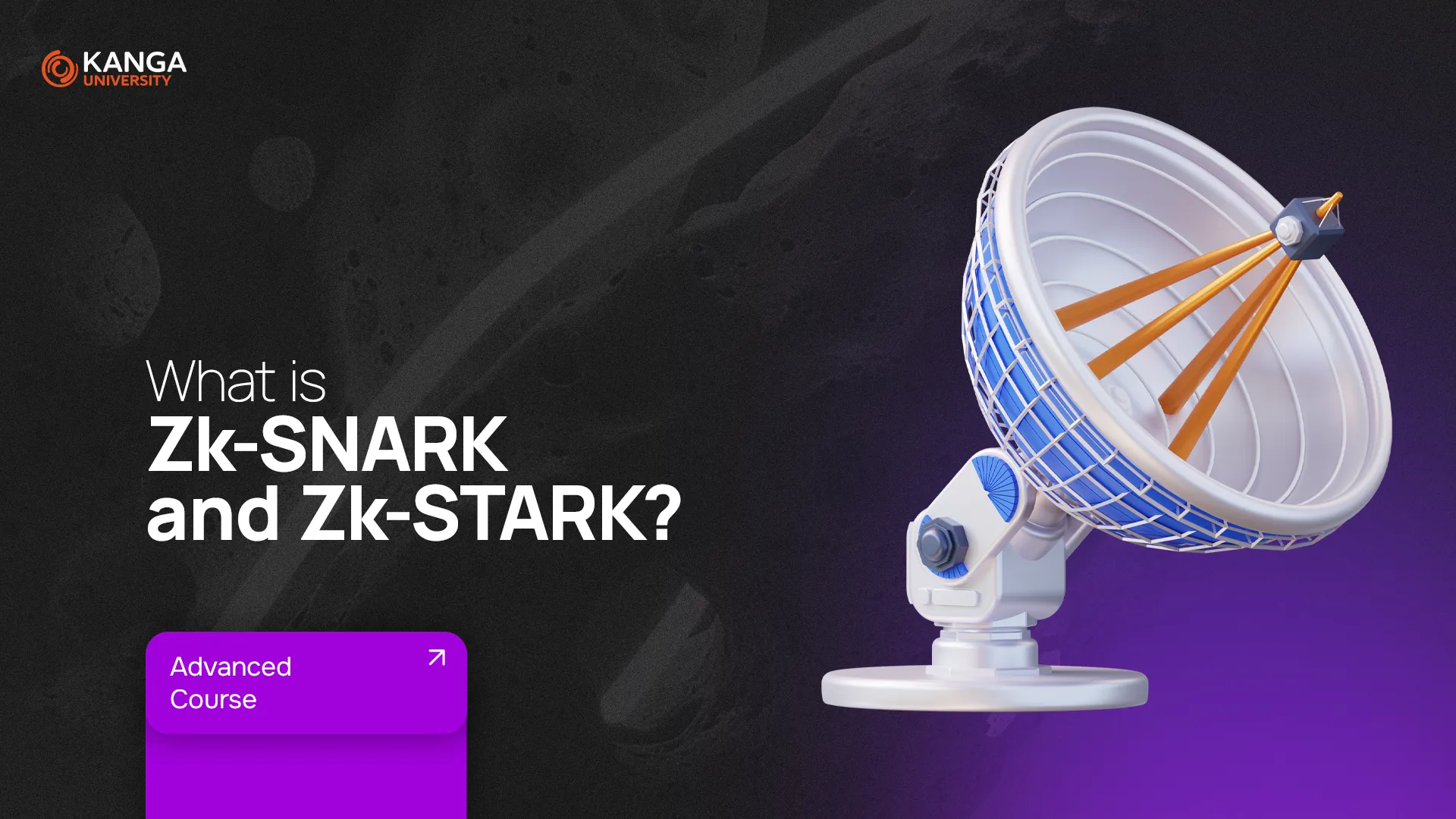
Blockchains, by nature, are transparent. But as the need for user privacy grows, developers are constantly searching for ways to protect personal information — without compromising security or trust.
That’s why zero-knowledge proofs (ZK Proofs) are gaining so much attention. These are cryptographic techniques that allow someone to prove the validity of a piece of information without actually revealing the information itself. Today, we’ll explore the two most well-known types: zk-SNARK and zk-STARK.
What are Zero-Knowledge Proofs (ZK Proofs)?
They’re a clever way to say “I’m right” — without saying why.
Imagine you want to prove to someone that you have enough money to complete a transaction — but you don’t want to reveal your bank balance or identity. ZK proofs let you do exactly that. This technology allows facts to be verified without exposing sensitive data.
In practice, a transaction can be valid, compliant, and visible to the blockchain — but without showing who sent it, to whom, or how much.
zk-SNARK: The privacy pioneer
zk-SNARK stands for Zero-Knowledge Succinct Non-Interactive Argument of Knowledge. It’s one of the first ZK protocols to gain traction in the cryptocurrency world.
How does it work?
-
It allows someone to prove they have a certain piece of information, without revealing its content.
-
It doesn’t require ongoing communication between the two parties — a single proof is enough.
-
It relies on elliptic curve cryptography (ECC), which enables strong encryption keys that are resistant to brute-force attacks.
The most famous project using zk-SNARK is ZCash, a cryptocurrency focused on privacy. Thanks to this protocol, users can send transactions that remain invisible to outsiders, yet are fully valid and verified by the network.
zk-STARK: The new standard for scalability and transparency
zk-STARK stands for Zero-Knowledge Scalable Transparent Argument of Knowledge. It’s the younger cousin of SNARK, designed with better performance and future-proofing in mind.
What sets zk-STARK apart?
-
No trusted setup is needed — meaning there’s no risk of the system’s private key being compromised.
-
It uses hash functions, which are more resistant to future threats like quantum computing.
-
It can move complex computations off-chain, easing the burden on the network and improving scalability.
The technology was developed by the Israeli startup StarkWare, creators of StarkNet, a popular Layer 2 platform for Ethereum.
A real-world example: business partner vs privacy
Imagine you run a company and want to check if a new partner has sufficient financial backing. But they’re not willing to show their bank account. What now?
Thanks to zk-STARK, they can prove they meet the requirement without revealing any financial details. The protocol generates a cryptographic proof that you can verify — and it all happens publicly, without violating privacy.
zk-SNARK vs zk-STARK: A comparison
| Feature | zk-SNARK | zk-STARK |
|---|---|---|
| Requires trusted setup | Yes | No |
| Cryptography | Elliptic curve (ECC) | Hash functions |
| Quantum resistance | Low | High |
| Proof size | Small (faster verification) | Large (slower verification) |
| Implementation difficulty | Easier | More complex |
| Scalability | Limited | Excellent |
| Adoption | Broader (e.g. ZCash) | Growing fast (e.g. StarkNet, zkSync Era, Polygon Miden) |
Any drawbacks? Of course — like any technology
Encrypted transactions are a powerful tool, but they can also be misused — for example, to hide illegal activity. That’s why there’s ongoing debate in the blockchain community: How can we protect users without enabling crime?
This doesn’t mean ZK proofs are bad — just that, like any innovation, they require responsible implementation.
Summary
Zero-knowledge proofs are shaping the future of privacy and scalability in blockchain.
-
zk-SNARK is a fast, proven standard already used in major projects.
-
zk-STARK is a modern solution designed for maximum performance and long-term security.
Both technologies can coexist, depending on what’s most important for a given application: speed, transparency, resistance to attacks, or trustlessness.
Purchase your favorite tokens on Kanga Exchange